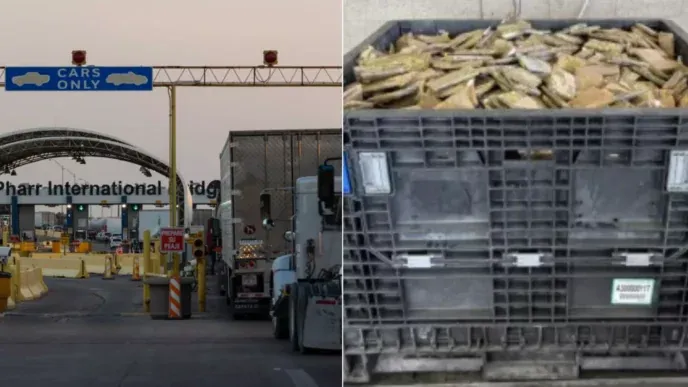Alabama lawmakers have given initial approval to a bill that would establish a state registry for certain immigrants and the organizations that sponsor them.
Rep. Ben Robbins, R-Sylacauga, introduced the bill aiming to prevent labor trafficking, reduce abuse of state welfare programs, and recover the cost of state benefits accessed by immigrants. But advocates argue it won’t protect immigrants and will only make it more difficult for them to find employment.
HB302, sponsored by Robbins, would require labor brokers and immigrant-sponsoring organizations to report individuals placed in Alabama jobs. The registry would cover people with asylum and humanitarian parole visas, excluding those on temporary work visas.
Robbins believes labor brokers—middlemen who sponsor immigrants and facilitate their move to the U.S.—need tighter regulation.
“The labor broker term is really a term of art that will cover what I would call shadowy figures, that are in essence labor trafficking individuals, that are leasing people for every dollar that they have,” said Robbins.
The bill targets a small portion of Alabama’s immigrant population—those with asylum or humanitarian parole visas—though exact numbers are unknown.
At a recent committee meeting, Robbins reassured colleagues that the bill won’t affect any specific industries or trades, since it excludes temporary visa workers.
“We’ve been able to work through definitions so it would not place burdens on business,” he said.
However, immigration advocates strongly oppose the bill. They argue it won’t effectively fight human trafficking and instead creates new job barriers for legal immigrants.
Asylum seekers are already vetted by federal authorities and must wait 150 days after arriving in the U.S. before applying for a work permit, said Meredith Gartin, Board President of the Alabama Interfaith Refugee Partnership. She warned that the bill could penalize those lawfully seeking to work after fleeing persecution.
“This bill outlines a number of steps that cost that employer more money to decide whether or not to hire this person seeking asylum,” Gartin said. “We’re not talking about big, industrial employers. We’re talking about the tire shop down the street.”
Robbins said the bill was partly in response to community concerns about an alleged influx of Haitian immigrants in his city—rumors that followed false claims from President Donald Trump and Vice President J.D. Vance about Haitian immigrants in Ohio.
In September, Sylacauga officials told AL.com that only about 60 Haitian immigrants lived there.
Robbins said he visited some of them and found their homes overcrowded and in poor condition.
“You were supposed to help assimilate these individuals,” he said of their sponsors. “And help them with some of their basic needs, and you’re not doing it. And now the state is doing it.”
Unable to identify the group sponsoring those immigrants, Robbins said he drafted the bill to address the issue.
He said the bill’s goal is to recover taxpayer money spent on benefits like Medicaid and food stamps. According to the Alabama Medicaid office, non-citizens can only access Medicaid in emergencies. Immigrants with parole or asylum visas, however, can qualify for food stamps.
Advocates argue that businesses shouldn’t face more bureaucracy just to hire workers.
“It is a bill that’s very anti-immigrant, and it’s hiding behind the known issues, but does not offer the real protection needed,” said Stephanie Richard, a law professor at Loyola Marymount University. Richard has worked on anti-trafficking laws in California.
She noted that those most vulnerable to labor trafficking are immigrants with temporary work visas—individuals often recruited by dishonest agents who charge large fees and make false promises about legal entry to the U.S. Once in the country, these workers face exploitation.
Labor trafficking, Richard said, is not a widespread concern among immigrants with asylum or parole visas—the main group targeted by the bill. She suggested Alabama should instead focus legislation on protecting temporary workers if it wants to tackle labor trafficking.
Since returning to office, President Trump has restricted refugee entry and revoked temporary visas for migrants from countries like Haiti, Cuba, and Afghanistan. Many of these moves face ongoing legal challenges.
Roughly 183,500 immigrants live in Alabama, and about 60,000 are undocumented, according to the American Immigration Council.
HB302 mandates that employers report new hires within seven days, establishing a state directory. Labor brokers must register each year and submit detailed lists of foreign workers, including where they first contacted the worker and the name of the Alabama employer. Sponsors must either legally commit to supporting the immigrants or repay the state for any benefits the immigrants receive.
The bill has passed both House and Senate committees and is now headed to the full Senate for consideration.












